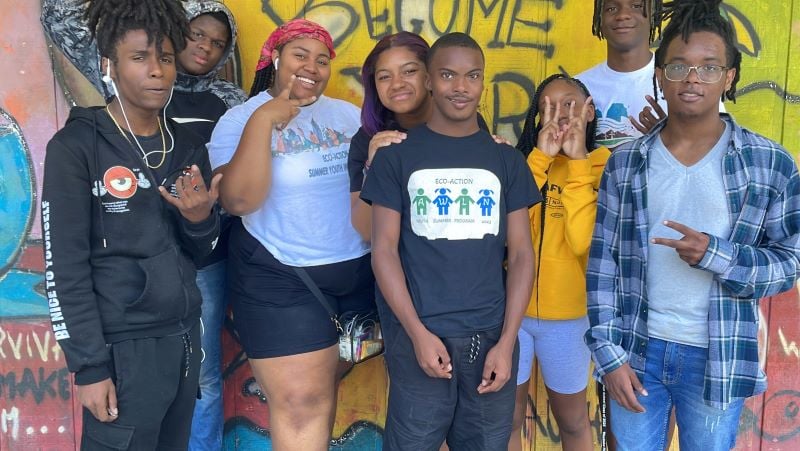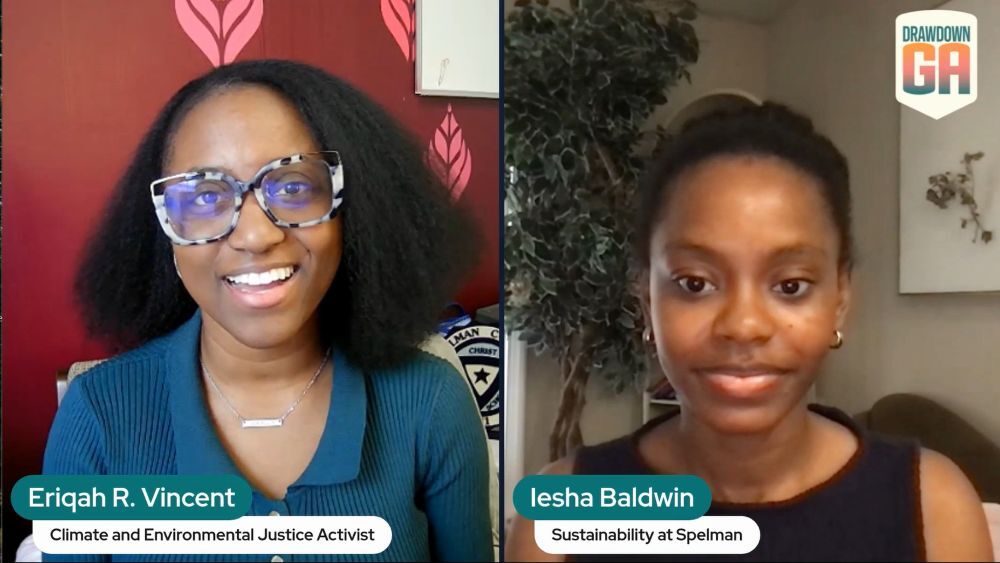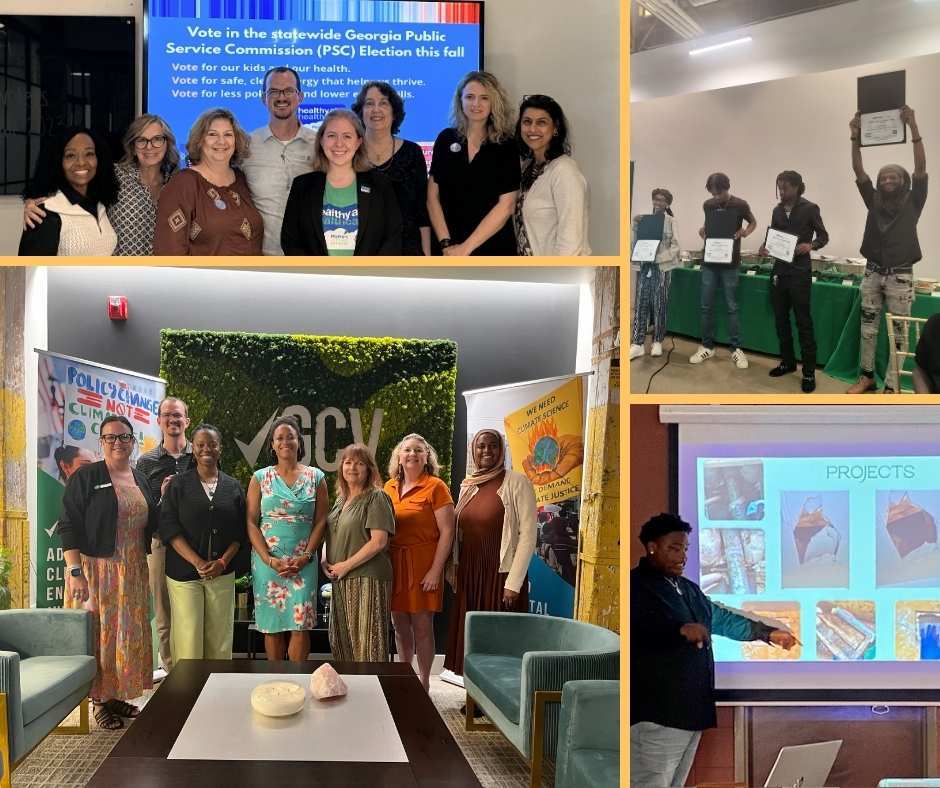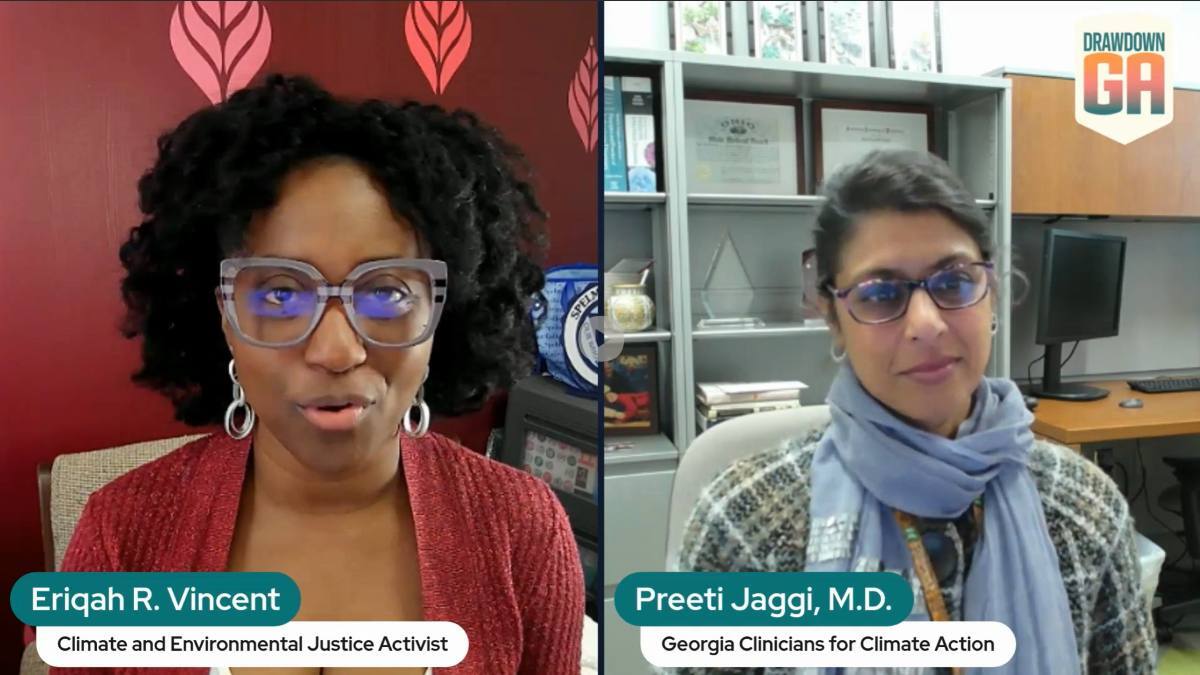What do composting, plant-based diets, and home energy efficiency projects have in common?
They are all climate solutions that can be harnessed to reduce emissions while improving the quality of life for historically disinvested communities in Georgia.
Environmental Community Action (ECO-Action) is putting all of these solutions to work in Georgia communities using funding from a 2024-2025 Drawdown Georgia Climate Solutions & Equity grant.
ECO-Action exists to promote a safe and healthy environment by helping Georgia communities organize to address environmental health hazards and pollution, particularly in vulnerable, low-income communities and communities of color. Their objective is to empower communities to become more resilient and better able to respond to environmental threats such as global warming, and to improve their environmental, social, and economic health and well-being.
A Conversation with Carla Lewis of ECO-Action
We spoke recently with Carla Lewis, the executive director of ECO-Action, about the critical work her organization is doing to strengthen communities, scale climate solutions, and improve quality of life for residents in the Intrenchment Creek and Proctor Creek neighborhoods of Atlanta.
Tell us about the work that ECO-Action does in the community.
We believe that there is no social justice without environmental justice. ECO-Action helps Georgia communities respond to the impacts of climate change as well as reduce their own carbon emissions at the same time. Through our monthly educational seminars, hands-on technical assistance, and ongoing programmatic support, people in our community are working together to improve their own environmental, social, and economic health and well-being through personalized resiliency plans. Our work addresses environmental health hazards and pollution to ensure safe living environments.
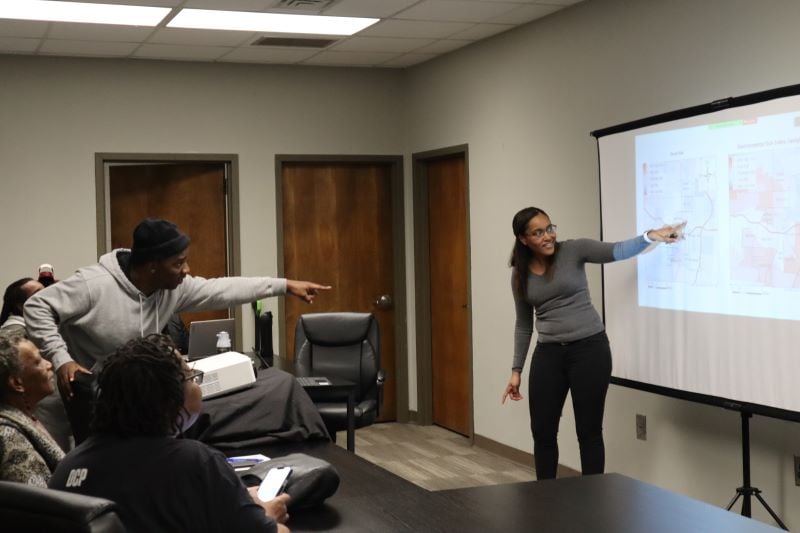
The intersection of three critical areas brings us to the communities that we help:
-
Threats to human health
-
Environmental degradation
-
Social justice
This drives our work to serve the general population throughout Georgia, while primarily focusing on assisting people in some of the state's most vulnerable communities. These include rural residents, people with limited resources, less formal education opportunities, and communities with large populations of residents who are Black, Indigenous, and people of color (BIPOC).
How is ECO-Action already involved in scaling climate solutions in Georgia?
Limited opportunities have existed for low-income community members in Atlanta to participate in climate mitigation strategies that reduce energy costs, optimize food waste utilization, and enhance quality of life in ways that also offer ecological benefits.
Knowing this, from March 2022 to March 2023, ECO-Action actively engaged and educated over 80 community members, including young adults and seniors from neighborhoods located in the Intrenchment Creek and Proctor Creek Watersheds about climate change and its potential repercussions.
Since we focus on empowerment, we guided community residents in devising personalized resiliency plans and collectively identifying tangible strategies to adapt to or enhance climate resilience in their own lives.
Congratulations on receiving a 2024-2025 Climate Solutions & Equity grant. Tell us about the projects this grant will fund.
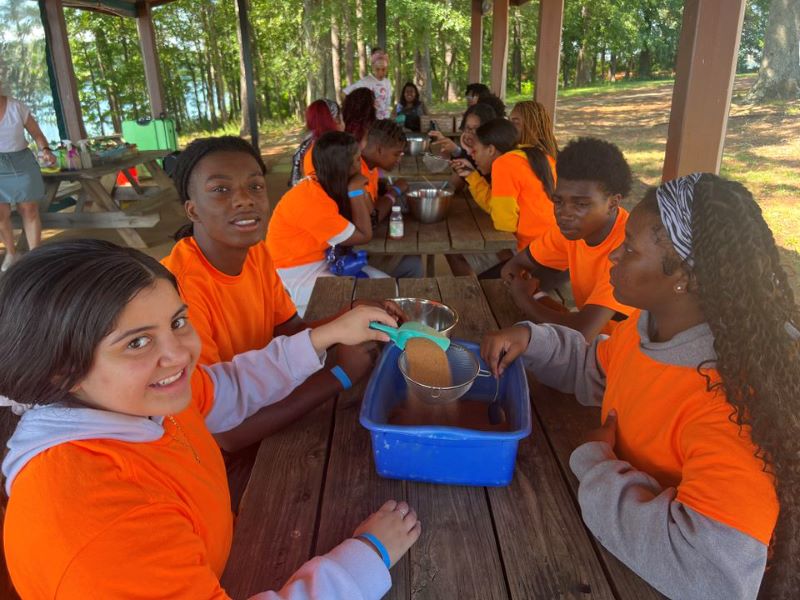
As a follow-up to our earlier work in the Proctor and Intrenchment Creek Watersheds, ECO-Action is collaborating with community-based partners Proctor Creek Stewardship Council and the Peoplestown Revitalization Corporation on projects centered around three major initiatives:
-
Conduct community-wide monthly training on climate resiliency and mitigation strategies, including transitioning to plant-forward diets, implementing green infrastructure solutions for stormwater management, reducing food waste, collecting materials for composting, and planting food trees to capture pollutants and mitigate heat island effects. These monthly trainings include education on climate change, health, vulnerability, resilience, and climate adaptation strategies.
-
Partner with neighborhood community gardens to collect food scraps to enhance composting at the gardens. ECO-Action is also partnering with previous Climate Solutions & Equity grantees Think Green Inc, Historic Westside Gardens, and Truly Living Well Center for Natural Urban Agriculture to expand their work in the Proctor Creek Watershed to the Intrenchment Creek neighborhoods that are not currently served by their work.
-
Provide weatherization training and materials for program participants to improve home energy efficiency. Volunteers and young adults will be trained to assess and weatherize homes in these communities.
We are also hosting special events to kick off these projects, including community education sessions and composting activities.
Why are energy efficiency and weatherization projects so important for your community?
It is critically important for residents in our communities to improve home energy efficiency and reduce energy costs, especially when this work can be achieved at no cost to the homeowners.
Low- and moderate-income households often face a higher energy burden, which refers to the percentage of household income that is spent on energy for heating, cooling, and electricity. The average U.S. household only spends about 3 percent of its annual income on energy, but low-income households in Atlanta often spend nearly 10 percent of their incomes on energy--more than three times as much.
Weatherization projects help community members see lower utility and energy bills, easing energy burdens and leading to greater sustainability within their neighborhoods, particularly for legacy residents.
Also, ECO-Action is utilizing the grant funding to develop systems strategies and resources that are scalable and replicable, making it easy to expand into other nearby low-income communities after the project is completed.
How will trainings on plant-based diets and composting benefit Proctor Creek and Intrenchment residents?
Composting is an environmentally friendly way to reduce organic waste and it also serves another important purpose: ensuring organic waste is kept from landfills.
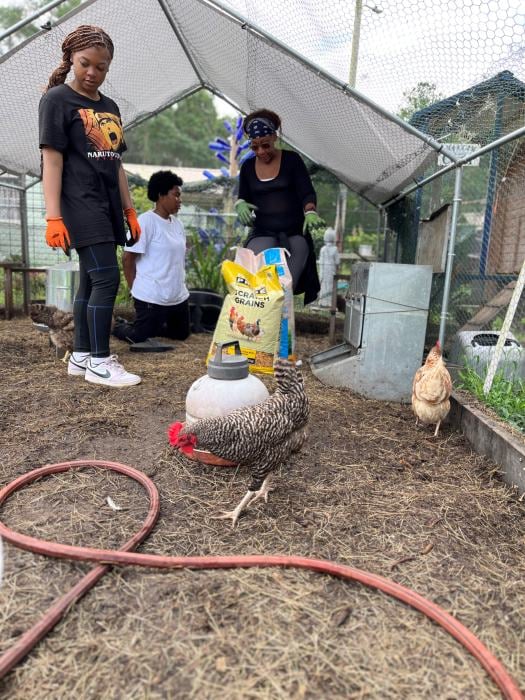
Vulnerable communities and rural communities are disproportionately impacted by landfills. The trainings ECO-Action is planning will teach residents how to use composting to reduce waste, while also providing free compost in place of fertilizer to grow fruits and vegetables for healthy eating in the community. Residents will learn how composting for plant-based diets can promote the creation of community food systems, while also learning how to develop a scalable food source and reduce food insecurity in their communities.
We also project that the training sessions will serve as a platform to share learnings and strategies and identify potential community partners for their implementation. Residents in Proctor Creek and Intrenchment will also facilitate the dissemination of the strategies to community members who may be unable to attend the sessions, while also garnering further support for these community-based initiatives from local government entities and nonprofit organizations.
What does success look like in your work?
ECO-Action’s hope is that these projects will lead to a better quality of life for community members, and that our work will help them become better equipped to participate in climate mitigation activities.
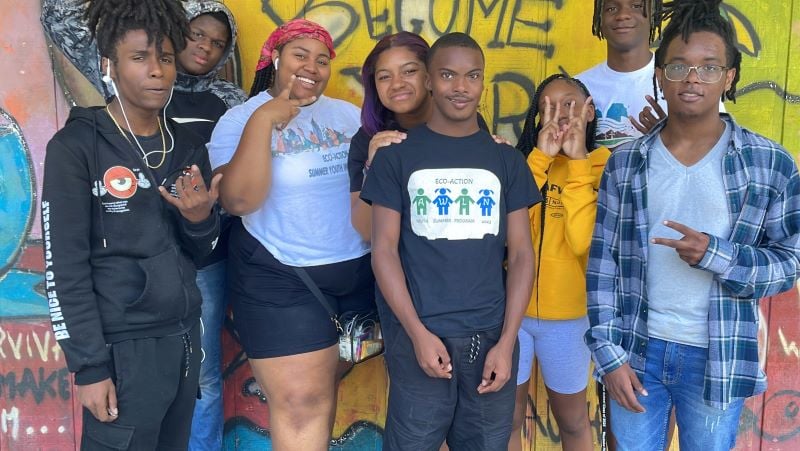
We share residents' vision for these neighborhoods to become a hub for green jobs and create a green job pipeline in infrastructure and urban forestry.
Success would also mean that residents in these communities are enabled and empowered to advance climate mitigation solutions.
How can people follow the work you do and/or get involved in your projects?
We invite the Georgia climate community to visit the ECO-Action website and follow us on Facebook, X/Twitter, and Instagram.
Stay Up to Date on the Progress of Climate Solutions & Equity Grant Projects
Thank you to Carla Lewis for speaking with us. We look forward to following your work as ECO-Action continues this important work to reduce emissions and build resiliency in the communities you serve.
Don’t miss out on future blog posts sharing updates from ECO-Action and all of the recipients of the Drawdown Georgia Climate Solutions & Equity grants. Subscribe to receive notifications about future blog posts now.


